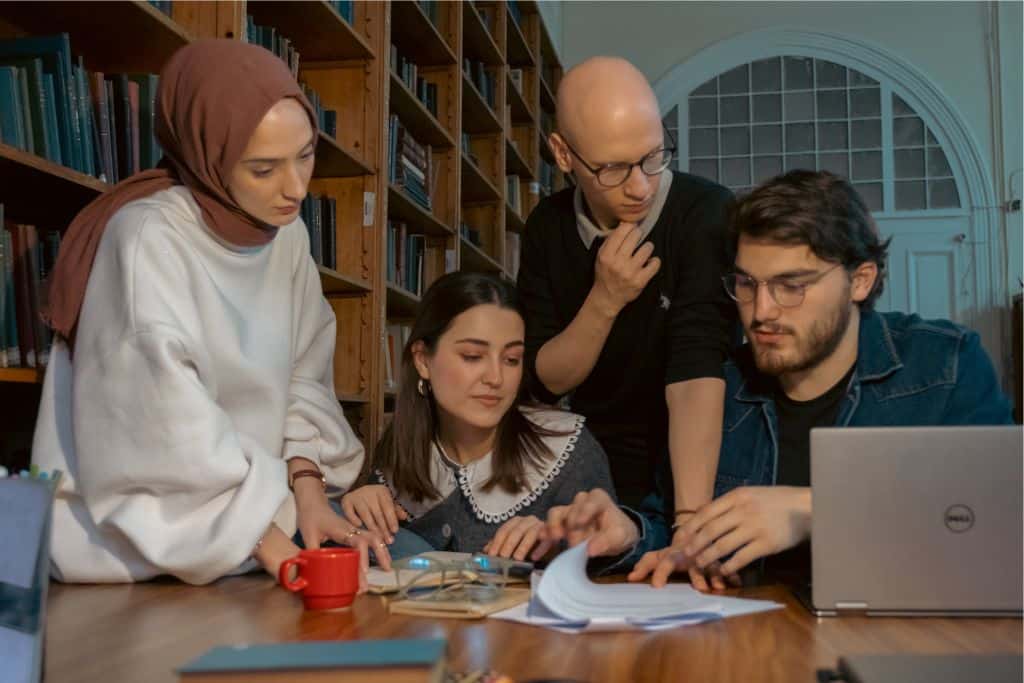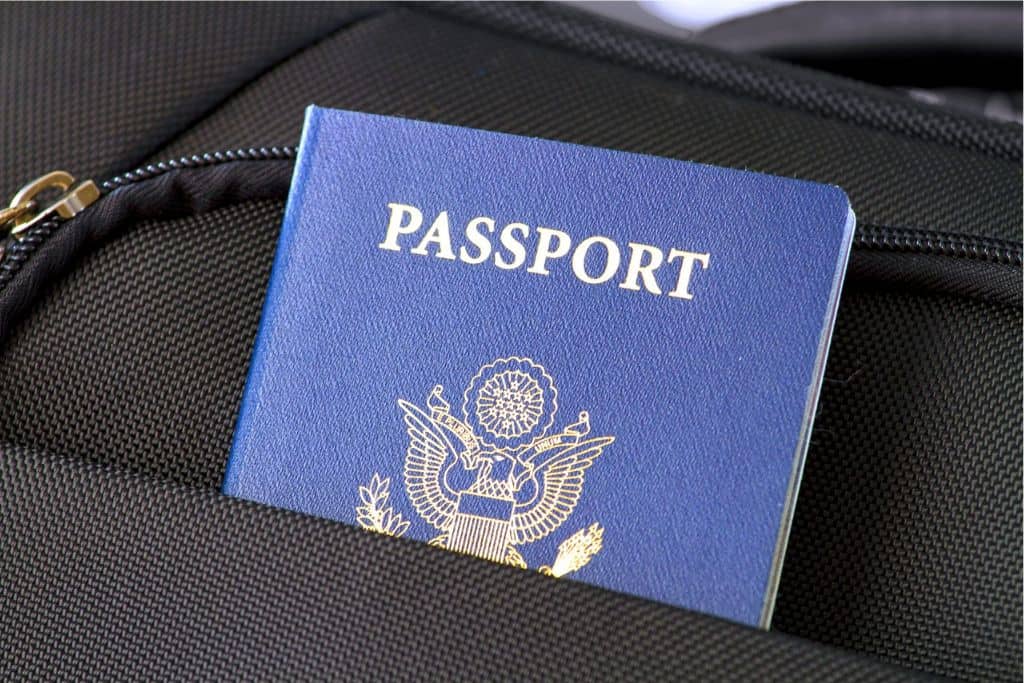
- Country Profile
- Student Life
- Education
- Requirements
- Costs
- FAQs
- prev
- next
Intro
About Study in Turkey

Turkey is located at the crossroads of Europe and Asia, making it a unique place where two continents meet. It is surrounded by the Mediterranean, Aegean, and Black Seas and shares borders with eight countries: Greece, Bulgaria, Georgia, Armenia, Azerbaijan (Nakhchivan exclave), Iran, Iraq, and Syria. This unique location has made Turkey an important center for trade, culture, and history for thousands of years. Many civilizations, such as the Hittites, Byzantines, and Ottomans, have shaped its rich past, making it a country full of historical and cultural treasures. The official language of Turkey is Turkish, and it is spoken by over 80 million people both in Turkey and in Turkish-speaking communities worldwide. However, in big cities and popular areas, many people also understand and speak English, especially younger individuals and those working in education or business. Turkey’s history is deeply connected to the Ottoman Empire, which lasted for over 600 years and influenced art, architecture, and culture around the world. In 1923, Mustafa Kemal Atatürk founded the modern Republic of Turkey, bringing many changes to modernize the country while keeping its traditions alive. Turkey is known for its warm and welcoming people, beautiful places, and lively cities. students can explore famous landmarks like Anitkabir Museum and ancient ruins like Ephesus or enjoy the natural beauty of places like Cappadocia and Pamukkale. Cities like Istanbul, Ankara, and Izmir combine old traditions with modern life, offering something for everyone. For those seeking opportunities to enhance their academic future, Turkey provides a blend of quality education and cultural experiences.
Why Study in Turkey?

A Unique Academic Experience
Turkey, with its strategic location bridging Europe and Asia, offers a unique educational environment that combines rich cultural heritage with modern academic excellence. Its universities are renowned for their high-quality academic programs, affordability, and vibrant student life. This blend of tradition and innovation makes Turkey a compelling choice for international students seeking both educational and cultural enrichment.
Quality of Education in Turkey
Turkey’s higher education system stands out for its rigorous academic standards and international recognition. The country's commitment to the Bologna Process ensures that Turkish degrees are recognized across Europe and globally, facilitating the mobility of graduates.
- International Recognition: Many Turkish universities are recognized by the European University Association (EUA), International Association of Universities (IAU), and have received accreditation from various international accrediting agencies, and have been ranked among the top universities globally by QS and Times Higher Education.
- Modern Facilities: Universities in Turkey are equipped with cutting-edge technology and facilities, including advanced laboratories, libraries, and research centers. This infrastructure supports a comprehensive learning experience and fosters innovation.
- Accredited Programs: Many Turkish universities offer programs accredited by international bodies, ensuring that the education provided meets global standards. This accreditation adds value to degrees for those who study in Turkey, enhancing their appeal in the global job market.
- English-taught Programs: Many universities offer programs taught in English to accommodate international students, making it easier for non-Turkish speakers to pursue their studies in Turkey. This includes undergraduate, graduate, and doctoral programs.
Top Study Majors for International Students
Turkey is a hub for academic excellence in several high-demand academic fields. International students frequently choose Turkey for its top-tier programs in various disciplines that meet international standards.
Engineering
- Overview: Turkey is renowned for its engineering programs, which cover a wide range of specialties including Computer Engineering, Electrical Engineering, Mechanical Engineering, and Civil Engineering. The programs are designed to provide a strong theoretical foundation along with practical experience.
- Top Institutions: Koç University and Sabancı University offer cutting-edge engineering programs with strong industry connections.
Medicine
- Overview: Turkish medical schools provide high-quality education with a focus on practical skills and clinical training. Programs often include extensive laboratory work and hospital rotations.
- Top Institutions: Yeditepe University and Koç University are renowned for their medical programs, which emphasize both academic excellence and clinical experience.
Business Administration
- Overview: Turkish universities offer robust business administration programs, including specializations in management, finance, marketing, and entrepreneurship. The curriculum is designed to prepare students for leadership roles in a global business environment.
- Top Institutions: Yeditepe University and ISTANBUL Okan University are recognized for their strong business programs, which integrate theoretical knowledge with practical skills.
Design and Architecture
- Overview: Turkey’s design and architecture programs are known for their creativity and practical application. The programs cover various fields including graphic design, interior design, and urban planning.
- Top Institutions: ISTANBUL BEYKENT UNIVERSITY and Doğuş University offer innovative programs in design and architecture, focusing on both artistic and technical skills.
- Creative Environment: Students benefit from a dynamic environment that encourages experimentation and collaboration, preparing them for careers in diverse design and architecture sectors.
Social Sciences and Humanities
- Overview: Turkish universities offer a wide range of programs in social sciences and humanities, including fields such as history, sociology, political science, and literature. These programs explore cultural, historical, and social contexts.
- Top Institutions: Özyeğin Üniversitesi and Sabancı University are renowned for their strong programs in social sciences and humanities, providing students with a comprehensive understanding of various social and cultural phenomena.
Cultural Diversity Enriches International Students

Turkey’s rich cultural heritage and diverse population create an enriching environment for international students. The country’s history as a crossroads of civilizations contributes to a vibrant cultural tapestry.
- Multicultural Environment: Turkey is home to a diverse population with a rich mix of cultures, languages, and traditions. This multicultural atmosphere provides international students with the opportunity to experience a variety of cultural influences and engage with people from different backgrounds while they study in Turkey.
- Cultural Exchange Opportunities: Students can participate in various cultural events, festivals, and activities that celebrate Turkey’s cultural diversity. These experiences foster intercultural understanding and help students integrate into the local community.
- Supportive Community: Turkish universities are known for their welcoming and supportive environment. Many institutions have dedicated offices to assist international students with cultural adjustment, academic support, and social integration.
- International networks and Social Activities: Universities offer a range of social and cultural activities, including student clubs, language exchange programs, and international student associations. These opportunities help students build connections and create lasting friendships.
Top Cities to Visit in Turkey
- Istanbul: Istanbul is Turkey’s biggest city, and it is full of history, culture, and excitement. It sits where Europe and Asia meet, offering students a mix of both worlds. Famous places like the Hagia Sophia and busy areas like Taksim make it a lively city. It is also home to prestigious universities that attract students from all over the world. Living here can be expensive, especially in popular neighborhoods.
- Izmir: Izmir is a coastal city with a relaxed vibe and great weather. It’s known for its lively arts scene, music festivals, and delicious food, making it a great place for students who want to enjoy both studying and having fun in a beautiful setting.
- Antalya: Antalya is a peaceful city by the sea, famous for its stunning beaches and natural beauty. It’s a smaller city, but perfect for students who enjoy a slower pace of life. The cost of living is lower here, and there are plenty of outdoor activities, like hiking and beach sports, to enjoy during your free time.
- Ankara: The capital city of Turkey, Ankara is a hub of politics, culture, and history. Known for its rich historical landmarks, students can explore the Museum of Anatolian Civilizations and the Kocatepe Mosque. The city offers a peaceful environment, making it an attractive place to visit, with its balance of modern amenities and historical charm.
Quick Highlights of Studying in Turkey

- Stunning Landscapes: Turkey is famous for its breathtaking natural beauty, including scenic mountains, pristine beaches, and historic sites. The country's diverse landscapes offer numerous opportunities for outdoor activities and exploration.
- Top Study Destination: Turkey ranks among the top educational destinations globally, offering a wide range of programs and competitive living costs.
- Educational Diversity: Turkish universities provide a broad spectrum of educational programs, from diplomas to advanced degrees, across various fields of study.
- Affordable Living: The cost of living in Turkey is relatively low, making it an attractive option for students seeking affordable education and living expenses when they study in Turkey.
- Welcoming Atmosphere: With over 300,000 international students, Turkey is known for its friendly and inclusive environment, making it an ideal destination for studying abroad.
Video
Location
-
Türkiye
Facts About Turkey
Location
- Continent: with approximately Europe (95%) and Asia (5%).
Time Zone
- UTC+03:00 (no daylight saving time)
Population
- As of 2025, Turkey’s population is estimated at over 85 million
Languages
- The official language: is Turkish
Capital
- Ankara
- Largest City: Istanbul, with over 15 million residents
Currency
- Turkish Lira (₺) (TRY)
Life in Turkey
Choosing to study in Turkey will provide you with great opportunities and experiences, as well as a world-class education.
Turkish Culture
Turkish society is known for being friendly, safe, advanced, and harmonious. It’s a culturally diverse country, thanks to its geographical location and historical significance. Turkey's proximity to both Europe and Asia greatly influences its economy, culture, and way of life.
The Turkish government emphasizes the importance of values that contribute to a better quality of life:
- Respect for freedom, dignity, and the value of a person
- Support for parliamentary democracy and the rule of law
- Equality under the law
- Equal opportunity for all
- Gender equality
- A spirit of mutual respect, tolerance, and sympathy for those in need
These principles create a welcoming environment for international students, ensuring that they feel respected and valued during their time in Turkey.
Activities to Do in Turkey for International Students
Turkey offers countless ways for students to immerse themselves in the local culture and enjoy their time outside of academics. The country’s diverse activities cater to a wide range of interests:
- Student Clubs, and Sports: Turkey provides students with diverse opportunities, including cultural and international clubs, arts, and sports activities. Universities often host festivals, workshops, competitions, and sporting events, encouraging skill-building, creativity, fitness, and social connections.
- Attend Film Festivals: Dive into Turkey's cinematic culture by attending renowned film festivals like the Istanbul Film Festival and the Antalya Golden Orange Film Festival. These festivals feature movies from around the world and highlight Turkey's creativity and storytelling.
- Explore Historical Landmarks: Visit iconic sites like the Hagia Sophia, Topkapi Palace, and Blue Mosque to dive into Turkey's rich history.
- Hike the Lycian Way: Trek this scenic trail for stunning coastal and mountainous landscapes.
- Hot Air Balloon Ride in Cappadocia: Soar over unique rock formations and fairy chimneys for breathtaking views.
- Pamukkale's Thermal Pools: Experience the stunning white travertine terraces and take a dip in the natural thermal pools.

transportation in Turkey
Turkey boasts an efficient and well-connected public transportation system that makes getting around easy and affordable. The system includes trains, buses, trams, and ferries, ensuring that students can travel conveniently both within cities and across the country.
- Public Buses: Buses are widely available in most cities and are an inexpensive way to travel. Many cities offer a student discount card for bus rides.
- Trams and Metro: Major cities like Istanbul, Ankara, and Izmir have efficient tram and metro systems that are fast and cost-effective.
- Taxis and Ride-Sharing: Taxis are available but may be pricier. Ride-sharing apps like Uber are also common in larger cities.
- Bicycles: Many cities have bike-sharing programs, making it easy for students to rent bicycles for short trips.
- Ferries: In cities like Istanbul, ferries are a popular mode of transportation, offering both a scenic and convenient ride.
If you have a driver’s license from your home country, you can drive in Turkey for up to six months. After this period, you’ll need to obtain a Turkish driver’s license. The process involves translating your existing license and authenticating it, making it a straightforward task for those who prefer to drive.
Beautiful Weather and Scenery
Turkey’s diverse landscapes are a significant draw for students. The country features stunning coastlines, expansive rural areas, and bustling modern cities, offering something for every taste.
- Mild Climate: The weather in Turkey varies across regions, allowing students to enjoy a range of outdoor activities year-round. Coastal areas, particularly along the Mediterranean and Aegean seas, enjoy long, sunny summers, perfect for beach outings and water sports.
- Natural Beauty: Turkey is a paradise for nature lovers. From the fairy chimneys of Cappadocia to the lush forests of the Black Sea region, students will find endless opportunities to explore the country’s natural wonders. The country’s national parks and nature reserves offer ideal settings for hiking, camping, and wildlife observation.
- Urban and Rural Charm: In addition to its natural beauty, Turkey’s urban areas like Istanbul and Izmir offer a unique blend of modernity and history. The architectural beauty and vibrant city life are just as captivating as the country’s scenic landscapes.
Healthcare System for International Students in Turkey

As an international student in Turkey, you can rest assured that you'll have access to comprehensive and quality healthcare during your studies. Turkey offers two main types of healthcare options: public and private, ensuring students are well-covered for their medical needs.
- Public Healthcare: International students are eligible for General Health Insurance (GSS), which provides access to a wide range of healthcare services at public hospitals and clinics. To benefit from GSS, students must enroll within 90 days of university enrollment. Once registered, they can access affordable medical care, including doctor visits, treatments, and hospitalization.
- Private Health Insurance: For students not covered by GSS, private health insurance is required. Numerous private insurance providers offer tailored plans for international students, covering essential healthcare needs such as doctor visits, hospitalization, and medications. These plans ensure students can receive timely and quality care in private hospitals and clinics across the country.
Career Opportunities After Graduation

After graduating from a Turkish university, international students can explore a wide range of career opportunities in sectors such as technology, engineering, finance, healthcare, and education. Many universities in Turkey have dedicated career centers that enhance the employability of students by assisting them in finding job opportunities through job fairs, career counseling, internships, and networking events.
Work Opportunities During Your Studies in Turkey
As an international student in Turkey, finding work during your studies can be an excellent way to gain experience, support yourself financially, and immerse yourself in the local culture. Turkey offers several opportunities for students to work part-time while pursuing their education. To work in Turkey, you’ll need to apply for a work permit. Be sure to follow the legal guidelines, as working without a permit can have serious consequences.
Submit an Inquiry
Educational System in Turkey

Higher Education in Turkey: A Global Hub for Students
Turkey’s strategic location at the crossroads of Europe and Asia, combined with its rich cultural heritage, makes it an attractive destination for international students. Currently, 350,000 foreign students from over 150 countries are studying in Turkey.
This influx of international students is not coincidental. Over the past few years, the Turkish government has implemented several initiatives to attract students from abroad. These include offering easing visa regulations, and increasing the number of programs offered in English. Additionally, Turkish universities have established numerous partnerships with institutions worldwide, facilitating student exchange programs and collaborative research opportunities.
The diversity of the student body in Turkish universities enriches the learning experience, exposing students to different cultures and perspectives. This global outlook is further enhanced by the country’s commitment to maintaining high academic standards and providing modern facilities and resources to support student learning and research.
Universities in Turkey

The expansion of Turkey’s higher education system over the past decade has been nothing short of remarkable. From just 76 universities a decade ago, the country now boasts 208 universities spread across all its cities. This exponential growth is a direct result of governmental policies aimed at democratizing education and making it accessible to a broader segment of the population.
This increase in the number of universities has also been accompanied by a surge in student enrollment. Today, nearly 7 million students are enrolled in Turkish universities, reflecting the country's commitment to building a knowledgeable and skilled workforce. This boom in higher education is supported by the Higher Education Council (YÖK), which oversees the functioning of universities, ensuring that they adhere to national standards and maintain the quality of education.
Istanbul Aydın University
- Ranking: 1201-1400 QS World University Rankings.
- Year Founded: 2007
- About the University: Istanbul Aydın University is a private institution in Istanbul, offering a wide range of undergraduate and graduate programs. The university focuses on practical experience, international collaborations, and modern facilities to support student success.
Koç University
- Ranking: =401 QS World University Rankings.
- Year Founded: 1993
- About the University: Koç University is a leading non-profit private university in Istanbul, known for its academic rigor and research excellence. It offers diverse degree programs in English, fostering global perspectives and strong international connections.
Sabanci University
- Ranking: =516 QS World University Rankings.
- Year Founded: 1994
- Top Fields:
- Computer Science
- Engineering and Technology
- Physical Sciences
- Social Sciences
- Business & Economics
- About the University: Sabancı University is a private institution in Istanbul with a focus on interdisciplinary education. It offers programs in arts, engineering, and business, and emphasizes research and innovation in a collaborative learning environment.
Levels of Higher Education in Turkey

Turkey’s higher education system is designed to provide students with a comprehensive and flexible academic journey, tailored to meet their individual goals and career aspirations. The system is divided into 4 levels:
- Associate Degree: typically takes two years to complete and focuses on vocational and technical education. It is designed for students seeking practical skills for immediate entry into the workforce. These programs provide hands-on training and foundational knowledge in various fields, making them an excellent choice for those pursuing career-oriented education.
- Bachelor'sbachelor's Degrees (Undergraduate Education): Typically, a four-year program, the bachelor's degree in Turkey lays the foundation for students in their chosen fields. Universities offer a wide range of undergraduate programs, from engineering and medicine to social sciences and humanities. These programs are designed not only to impart theoretical knowledge but also to develop practical skills through internships, lab work, and projects. Turkish universities emphasize a holistic approach to education, encouraging students to participate in extracurricular activities, which foster leadership and teamwork skills.
- Master’s Degree (Postgraduate Studies): Master's programs in Turkey generally last two years and are available in both thesis and non-thesis options. The thesis option is research-oriented and prepares students for academic careers or further studies at the doctoral level. The non-thesis option is more professionally oriented, focusing on practical skills and knowledge that can be directly applied in the workplace. Turkish universities offer master's programs in a wide array of disciplines, often in collaboration with industry, ensuring that the curriculum is aligned with current market needs and trends.
- PhD Degree: A PhD in Turkey is a rigorous program that typically takes three to five years to complete. It is heavily research-focused, with students expected to contribute original knowledge to their field of study. PhD candidates work closely with faculty advisors and often have the opportunity to collaborate on international research projects. Turkish universities are known for their research output, particularly in fields such as engineering, medicine, and the natural sciences. doctoral students are encouraged to publish their research in international journals and present their findings at conferences, helping to raise the profile of Turkish academia on the global stage.
Higher Education for the Turkish Educational System
The Turkish higher education system is distinguished by its rigorous academic standards and its adaptability to the latest advancements in science and technology. The centralized nature of the system, overseen by the Higher Education Council (YÖK), ensures that all institutions adhere to a uniform set of standards and practices. This centralization also facilitates the equitable distribution of resources, enabling universities across the country to provide high-quality education.
Turkey's higher education institutions are structured to offer a comprehensive educational experience, with a strong emphasis on research and development. The universities are designed not only as places of learning but also as centers of innovation and creativity. This is reflected in the numerous research centers, tech parks, and incubators that are attached to many universities, fostering an environment where students and faculty can collaborate on cutting-edge research and entrepreneurial ventures.
Moreover, Turkish universities have embraced the concept of lifelong learning, offering a variety of continuing education programs that cater to professionals looking to upgrade their skills or change careers. This flexibility ensures that the Turkish education system remains relevant and responsive to the changing needs of the global economy.
The Evolution of the Turkish Education System
Over the past decade, the Turkish education system has undergone significant transformation, particularly in terms of quality and internationalization. Turkish universities have made significant investments in upgrading their infrastructure, adopting new technologies, and enhancing their academic offerings. This has led to a noticeable improvement in the quality of education, with several Turkish universities now featuring prominently in global rankings.
One of the key drivers of this evolution has been Turkey’s strategic focus on internationalization. Turkish universities have actively sought to build partnerships with institutions around the world, offering joint degrees, exchange programs, and collaborative research initiatives. This has not only enhanced the global reputation of Turkish universities but has also provided students with valuable opportunities to gain international experience and exposure.
The improvements in the Turkish education system have made it a competitive alternative to traditional European and North American destinations. Turkish universities offer high-quality education at a fraction of the cost, making them an attractive option for students from developing countries who are looking for affordable education options without compromising on quality.
Academic Calendar in Turkey
The academic year in Turkey follows a two-semester system, with the Fall Semester typically starting in late September or early October and ending in mid to late January, followed by final exams. The Spring Semester begins in mid-February and concludes in late May or early June, with final exams held at the end of the term. It's important to keep track of the application deadline for each semester, as universities in Turkey usually set specific cutoff dates for applications prior to the start of each semester. This structured schedule ensures a balanced academic year for students.

We encourage you to explore the opportunities that Turkish higher education has to offer. Whether you are considering studying in Turkey or looking for more information on specific programs, institutions, or the admissions process, our academic advisors are here to help. Reach out to us for personalized advice, detailed information, and support throughout your educational journey in Turkey.
Submit an Inquiry
Requirements for Studying in Turkey

Applying to study in Turkey involves a relatively straightforward process. Here’s a detailed look at the conditions and university admission requirements for studying in Turkey, including the necessary steps to get admission from a suitable university for your field of interest:
Language Terms
In Turkey, the official language is Turkish, and many programs are offered in Turkish. However, many universities also provide a variety of English programs to cater to international students. For those who wish to study in English, proficiency in English language skills must be demonstrated through standardized tests. The commonly accepted English proficiency tests include:
- TOEFL (Test of English as a Foreign Language): This test measures your ability to understand and use English at the university level. It assesses your skills in reading, writing, listening, and speaking.
- IELTS (International English Language Testing System): IELTS is widely recognized and tests your English skills across listening, reading, writing, and speaking. It is often required for admission to English-taught programs.
- Cambridge English Advanced (CAE): This advanced English test certifies your proficiency in using English for complex tasks and academic purposes.
Universities in Turkey that offer programs in English also often provide preparatory Turkish language courses for those who may need to improve their Turkish skills before starting their studies.
Conditions for Admission to Turkish Universities
Admission to Turkish universities typically requires several key application documents and qualifications. Here’s what you need to consider:
- Secondary Certificates: You will need to present your high school diploma or an equivalent certificate, which must be officially recognized by the Turkish higher education authorities. This document should be translated into Turkish or English if it is not already in one of these languages.
- Standardized Tests: Depending on the university and program, you may need to provide scores from standardized tests like the SAT, ACT, or university-specific entrance exams. These tests help universities assess your academic abilities and readiness for higher education.
- Language Proficiency score: If your chosen program is in Turkish, you may need to demonstrate proficiency in Turkish. For English-taught programs, you will need to provide scores from English proficiency tests like TOEFL, IELTS, or CAE.
- Personal Statement: A personal statement or letter of motivation is often required. This document should outline your academic interests, future career goals, and reasons for choosing the specific program and university.
- Letters of Recommendation: Universities may ask for letters of recommendation from academic or professional referees who can attest to your qualifications and suitability for the program.
Graduate Studies: Admission to postgraduate programs typically requires the completion of an undergraduate degree. In addition to your Bachelor's degree, universities may consider your academic record, research experience, or related work experience. Some programs may also require GRE or GMAT scores, depending on the field of study.
Vocational Education and Training (VET)
For vocational education and training (VET) programs, entrance exams are generally not required. However, some VET programs may have specific prerequisites or may require proof of relevant work experience. For example, certain technical or trade programs might necessitate prior training or practical experience in the field.
Documents Required for University Applications

When applying to universities in Turkey, ensure you have the following documents ready:
- Completed Application Form: Submit the application form through the university’s online portal or as instructed.
- Academic Transcripts and Diplomas: certificate of completion of the previous educational institutions, which should be translated into Turkish or English language if necessary.
- Language Proficiency Test Scores: Submit your TOEFL, IELTS, or CAE scores as required by the program.
- Health Insurance: Proof of health insurance that covers the student for the duration of their stay in Turkey.
- Personal Statement: A letter detailing your motivations and academic interests.
- Letters of Recommendation: From academic or professional references.
- Proof of Financial Means: Documentation showing you can support yourself financially during your studies, such as bank statements.
- Passport-sized Photos: Recent photos for your application.
- Application Fee payment: Proof of payment for the application fee.
Documents Required for Turkish Student Visa

Once you receive your acceptance letter from a Turkish university, you will need to apply for a study visa. The documents typically required for this process include:
- Letter of Acceptance: An official acceptance letter from the Turkish university.
- Completed Visa Application Form: Obtainable from the nearest Turkish consulate or embassy.
- Valid Passport: Ensure your passport is valid for at least six months beyond your intended stay.
- Health Insurance: Proof of health insurance that covers the student for the duration of their stay in Turkey.
- Proof of Accommodation: You'll need to provide evidence of where you will be staying in Turkey.
- Flight ticket Reservation
- Proof of Financial Means: Documents such as bank statements or financial guarantees showing you can support yourself while studying in Turkey.
- Visa Processing Fee: Varies depending on your nationality.
- Passport-sized Biometric Photos: Recent photos for the visa application.
- Other Supporting Documents: Academic transcripts, diplomas, or certificates
Student Residence Permit
Upon arrival in Turkey, you will need to apply for a residence permit within one month. The documents required for this process generally include:
- Proof of Enrollment: Documentation from your university confirming your student status.
- Passport and Student Visa: Your passport and the student visa are issued by the Turkish consulate.
- Proof of Address: Evidence of where you will be residing in Turkey, such as a rental agreement.
- Photographs: Passport-sized photos.
- Fee payment: Varies depending on the duration and type of permit.
Submit an Inquiry
Study Costs in Turkey

One of the key factors to consider when planning to study in Turkey is the cost of living and tuition fees. The cost of living in Turkey can vary depending on the city, lifestyle, and personal preferences. Additionally, tuition fees vary depending on the university and level of study, so it’s essential to research and plan accordingly. Here are some general guidelines to help you budget and manage your expenses.
Accommodation Options
Students in Turkey can choose from a variety of accommodation options, including university dormitories, state-owned dormitories, and private rentals, catering to different budgets and preferences.
University Dormitories
- Overview: University dormitories offer a structured living environment with the added benefit of being closely integrated with campus life. These dormitories typically come equipped with basic amenities including kitchen facilities and small cafeterias. They are segregated by gender and offer a range of room options from private to shared.
- Advantages: Living in a dormitory facilitates easy access to campus resources and activities, making it easier to build a social network and engage in university life. It also provides a supportive environment as you acclimate to your new surroundings.
- Costs: Dormitory prices can vary widely based on the facilities and type of room. On average, expect to pay between 1,500 TRY and 11,000 TRY per month.
State-Owned Dormitories
- State-run dormitories are a viable option for students seeking budget-friendly accommodation. These facilities have undergone significant upgrades recently, improving the quality of living. They are available throughout the year, including during breaks.
In addition to dormitories, private rental options are also available for students, offering another level of flexibility and choice for those seeking off-campus housing.
Living Expenses
On average, students spend between 4,000 TRY and 7,000 TRY per month on living expenses, excluding accommodation. This budget typically covers food, transportation, and miscellaneous costs.
Living Costs in Istanbul
Istanbul, being a major city, has a higher cost of living compared to other Turkish cities. Typical monthly expenses in Istanbul include:
- Rent for a one-bedroom apartment: Approximately 1,400 TRY
- Utilities: About 500 TRY per month
- Public Transport Pass: 300 TRY
- Food and Groceries: Meals in inexpensive restaurants cost around 30 TRY, while basic grocery items such as milk (5 TRY per liter) and vegetables (3 TRY per kg) are relatively affordable. On average, international students can expect to spend between 1,500 TRY to 2,500 TRY per month on groceries.
- On-Campus meal: approximately 6.5 TRY
Health Insurance
- Health insurance can cost around 300-1,000 TRY per year.
Tuition Fees

Public Universities
Public institutions in Turkey are known for their low tuition fees. For undergraduate programs, annual fees typically range from 1,000 to 5,000 TRY, though fees for specialized programs like medicine or engineering can be higher.
Private Universities
Private institutions charge higher tuition fees, ranging from 10,000 to 50,000 TRY per year. English-taught programs may also come with additional costs.
Additional Expenses
- Mobile phone: About 60 TRY.
- Books and Materials: Students may need to budget for textbooks and other course materials, with monthly costs averaging around 100-400 TRY, depending on the number of courses and required resources.
- Cinema Ticket: The average cost of a cinema ticket is approximately 20 TRY
Submit and Inquiry
FAQS
Q: Why should I choose Turkey for my higher education?
A: Turkey offers a unique blend of cultures, providing a rich historical backdrop and a modern educational environment. It is a popular global education destination, offering high-quality programs in fields like engineering, medicine, and business. Additionally, Turkey provides affordable tuition fees and living costs, making it an attractive choice for students.
Q: Are degrees from Turkish universities recognized internationally?
A: Yes, degrees from accredited Turkish universities are generally recognized internationally. Turkish universities follow the Bologna Process, ensuring compatibility with European education standards. However, recognition may vary depending on the country and field of study. It is advisable to check specific recognition agreements or accreditation standards in the intended country for further clarity.
Q: What makes Turkey an attractive option for international students?
A: Turkey is known for its diverse and multicultural environment, attracting over 300,000 international students. English is widely used in major cities and universities, making it easier for foreign students to adapt. The country's competitive study programs, reasonable living expenses, and welcoming atmosphere make it a popular choice for students worldwide.
Q: What are the language requirements for studying in Turkey?
A: While Turkish is the official language of instruction, many programs are also offered in English. If you choose to study in English, you'll need to take a language proficiency test such as TOEFL, IELTS, or Cambridge English: Advanced (CAE). Additionally, Turkish language preparation courses are available for those who wish to study in Turkish.
Q: What are the basic admission requirements for Turkish universities?
A: The basic admission requirements for Turkish universities vary by level of study. For undergraduate programs, applicants typically need a high school diploma or equivalent, proof of language proficiency (Turkish or English, depending on the program), and entrance exam scores such as SAT/ACT for certain programs. Additional documents like a valid passport, transcripts, letters of recommendation, and a statement of purpose may also be required.
For postgraduate studies, candidates generally need a bachelors degree in a relevant field, proof of language proficiency, and entrance exam scores such as the GRE/GMAT (for some programs). Universities may also require a research proposal, curriculum vitae (CV), letters of recommendation, and a statement of purpose. Requirements may vary depending on the university and program.
Q: Can international students work in Turkey after graduation?
A: After completing your degree, you can apply for a work permit to stay and work in Turkey. The work permit allows you to be employed in a field related to your education, further opening doors for students to gain professional experience in an international setting.
Q: Do international students need a visa to study in Turkey?
A: Yes, international students need a student visa to study in Turkey. After being accepted by a Turkish university, students must apply for a student visa at the nearest Turkish consulate or embassy in their home country. The application process usually requires documents such as an acceptance letter from the university, proof of financial means to cover living expenses, a valid passport, and other relevant paperwork. Upon arrival in Turkey, students must apply for a Student Residence Permit within 30 days, which allows them to stay in the country for the duration of their studies.
Q: Is learning Turkish important for international students in Turkey?
A: If your program's medium of instruction is English, learning Turkish is not mandatory, although it can still enhance your overall experience in Turkey. Knowing Turkish helps with daily life, such as shopping, navigating public transportation, and connecting with locals. However, if your program is in Turkish, learning the language becomes essential for academic success and effective communication both in and outside the classroom. Being proficient in Turkish will ensure you can fully engage with your studies and integrate more easily into the local culture.
Q: What types of accommodation are available for international students in Turkey?
A: International students in Turkey have several accommodation options, including university dormitories, private student housing, and apartments for rent. University dormitories are the most affordable and convenient option, while private housing provides more independence. Prices vary depending on the location and type of accommodation.
Q: Is health insurance required for international students?
A: Yes, international students in Turkey are required to have health insurance to ensure access to medical services during their stay. This can either be private health insurance purchased from a Turkish insurance provider or General Health Insurance (GSS). Students opting for GSS must apply within their first three months of residence to access affordable healthcare services.
Q: What is the academic calendar in Turkish universities?
A: The academic year in Turkey is divided into two semesters. The Fall Semester runs from late September or early October to January, while the Spring Semester spans from mid-February to late May or early June. Both semesters are followed by final exams.



